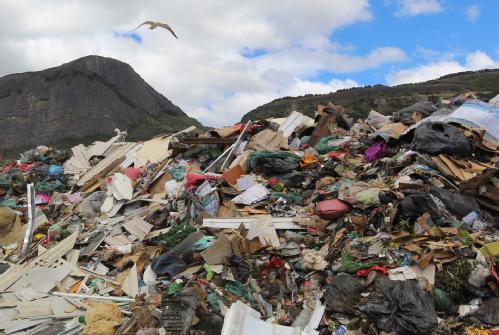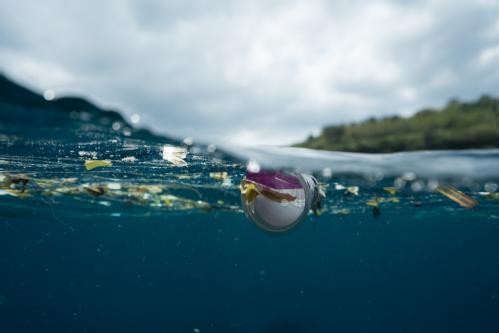Plastic Pollution - Challenging Corporations


The way ahead for plastic pollution is to challenge industry and corporations on environmental damage.

Professor Alice Mah, Department of Sociology, Warwick

I don’t know if I’m an optimist, but I do try to see the best in everyone. It’s why my work, which focuses on the role of the plastics industry in the ecological crisis, can sometimes be demoralising. Yet we must keep trying to change the narrative despite the inevitable pessimism – we have to shine a light on what’s really going on.
When you’re from a small Canadian town dominated by sawmills, you grow up with a different kind of awareness of ecological issues and environmental inequalities.
Forestry is not the focus of my professional life, though. It’s the problems of marine plastic waste, environmental injustice and toxic pollution where my interest as a sociologist lies. And as COVID-19 took hold, I noticed that the conversation around plastic was changing.
My recent book, Plastics Unlimited: How Corporations Are Fuelling the Ecological Crisis and What We Can Do About It (with Polity Press), is very much a product of the pandemic.
Almost overnight, everyone stopped talking about how we must stop polluting the Earth with plastics. Instead, people were discussing protective equipment that could help save lives. I felt compelled to talk about this shift, especially as the only books on plastics in the shops were about how consumers can reduce, reuse and recycle.
For my book, “Plastic Unlimited: How Corporations Are Fuelling the Ecological Crisis and What We Can Do About It”, I envisioned each chapter telling its own story, from toxicity to marine plastic waste, the climate crisis, the pandemic and then the future. Splitting it into distinct but linked stories helped me stay disciplined, and I think the result is something that always has something gripping to say but retains its academic rigour.
I had to delve into historical research, because all of the present-day crises I covered actually began decades ago. Since the Second World War, there has been an exponential growth curve of plastics and petrochemical production linked to the industry’s relentless drive to manufacture and expand demand for plastic products around the world, regardless of the toxic harms. 
Without serious policy interventions, I don’t see this growth abating anytime soon, and even models based on the most radical of societal changes predict that there will be about three times as much plastic waste in the ocean in 20 years’ time as there is now.
My book explains how the problems of toxicity, marine waste and the climate crisis have interconnected corporate roots, and why it’s these forces that really continue to drive us towards ecological catastrophe.
‘Big plastic’ uses many of the strategies from the corporate playbook employed by big oil and big tobacco.
From denying the toxic hazards of petrochemicals to funding misinformation campaigns around the effectiveness of recycling (most items that go into the recycling bin actually end up being burned or dumped), nothing is off-limits in the effort to resist regulation and protect profits.
When I attended an industry conference in 2019, corporations responded to the outrage over images of marine wildlife choking on plastic by framing the issue as one of littering rather than overproduction. 
As one executive put it: “We need to get the image of plastic in the oceans out of the public’s mind; we need to make plastic fantastic again.” It’s a battle that the industry is, on many levels, winning. There are currently no global or national policy visions of a circular economy that go as far as to call for limiting plastic production altogether. You can probably see how working in this field can challenge your optimism. But there are reasons to remain positive.
In March, the UN Environment Assembly agreed on a mandate for a new global treaty to address the crisis – a significant step towards creating legally binding measures to prevent toxic plastic pollution. This builds on the inspiring global anti-plastics movement that is fighting many grassroots environmental justice battles against polluters.
Personally, grounding myself in the here and now of life at Warwick helps, too. When I talk to my students in environmental sociology that I teach, I see their passion and it gives me hope.
And in this field, hope is exactly what you need to hold on to.
sociology
